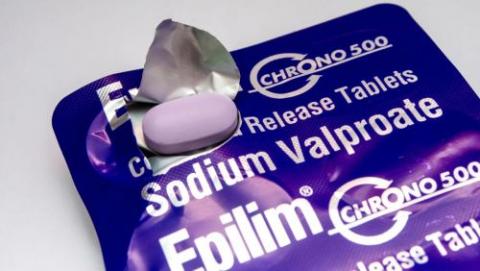
GPs and pharmacists in the UK are being warned to review all female patient cases that are taking the epilepsy medication sodium valproate. This comes from data showing that there is a wide variation in prescription practices in the UK.
The Medicines and Healthcare products Regulatory Agency published an update on drug safety regarding valproate. The agency requested that healthcare professionals are insuring that they are acting in full compliance with new measures around the drug.
There has been a consistent reduction in the number of women of childbearing age that are using valproate, however there are still reports of instance of women not being educated of the risks the drug can pose during pregnancy. Some women have indicated that they were not given patient information materials with their dispensed medicines.
There is a notable variation in the number of females aged 14-45 who are filling sodium valproate prescriptions. Figures released from the Southampton Clinical Commissioning Group show that From July to September 2018 15.96% of people with a valproate prescription were women of childbearing age. In South Warwickshire this figure was 7.07%.
In 2017 3.3 per 10,000 pregnancies, which translates to 250 live births, were exposed to valproate in the UK. Up to 40 per cent of babies exposed to sodium valproate during pregnancy are born with physical or neurodevelopmental problems.
Raising awareness of risks associated with sodium valproate is now one of the key priorities for the Community Pharmacy Patient Safety Group leading into 2019.
The MHRA has advised; "An audit function is available on all GP software systems – use this now to identify and recall all women and girls on valproate who may be of childbearing potential and refer to an appropriate specialist for a review".
78 patients were surveyed by INFACT, the national valproate campaign. The survey highlighted that between June and September of 2018 88% of respondents had not signed risk acknowledgment forms as part of the newly developed regulations around the valproate.
The MHRA has been tracking trends in valproate prescriptions so they can assess the effectiveness of the new regulatory recommendation and the new pregnancy prevention programme.
Valproate is used to medicate a number of conditions like epilepsy, migraine and sometimes bipolar disorder. However its most common use is for treatment of epilepsy.
The Clinical Practice Research Datalink Gold databases have data which reveals that both new and repeat prescriptions of valproate in females of childbearing age and in pregnancy has declined between 2010 and 2018.
There was a more substantial decline in relation to the rate of new valproate prescriptions. The sharp decline in use amongst adolescent girls from 2015 continued into 2018.
There was a 72 per cent reduction in new use in the first half of 2018 compared with the same period in 2010. The overall rate of prescribing valproate in women with epilepsy aged 14-45, during the same period has decreased by 37 per cent. Prescribing of valproate in pregnancy also declined by 47 per cent.
